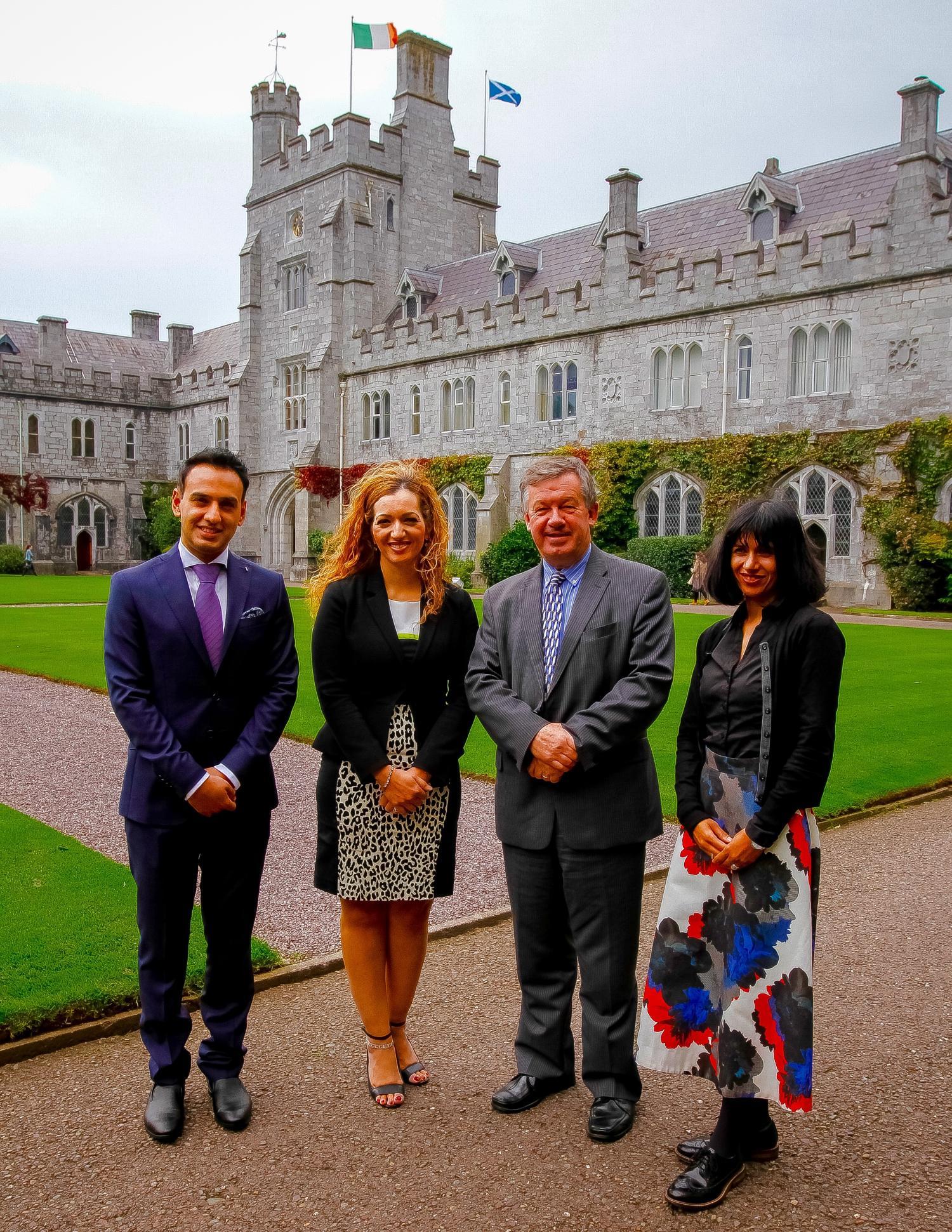In This Section
- Home
- About Us
- Research
- Research Clusters & Working Groups
- Ageing
- Children and Young People
- Research for Civil Society, Environment and Social Action (REACT)
- Genders, Sexualities and Families
- Disability and Mental Health
- SHAPE
- CARE21
- Migration and Integration
- Poverties, Social Justice and Inequalities
- Gender and the Academy Research Working Group
- Crime and Social Harm (CSH)
- Populism and the Rise of the Far-right
- Work, Organisations and Welfare
- TRANSS UCC Working Group
- News and Events
- People
- Events
- Join Us
Public forum on Muslim immigration in Europe

On Friday 23rd September 2016 a forum was held on 'Muslim Immigration in Europe: Masculinity, Politics and Law' organised by Study of Religions in collaboration with ISS21 Migration/Integration Cluster, Centre for Criminal Justice and Human Rights (CCJHR) and Women’s Studies.
The University Tower had raised the Scottish flag for the event which was held in the Aula Maxima with President Michael Murphy, Tasmina Ahmed-Sheikh (OBE. M.P. Ochil and South Pershire, Scotland), Dr. Samia Bano (Senior Lecturer in Islamic Law SOAS) with Dr. Amanullah De Sondy (Senior Lecturer in Contemporary Islam, UCC) chairing the event.
At a time when there seems to be much heated debate about Muslim minorities in Europe, the speakers reflected on the intersection of Muslim immigration in Europe and race/ethnicity, gender/sexuality and pluralism. Dr. Micheal Murphy opened the event by stating that Muslims make up a large part of the diverse UCC campus and such discussions were needed in academic spaces. Tasmina Ahmed-Sheikh spoke of her experience as a Scottish Muslim and how her ideas and identity were shaped through her Pakistani and Czech parents. She further highlighted the difficulties she faced as a woman rising in politic ranks and stated that ’no one equality is more virtuous than another, equality is important for all and must advocate for all’. Tasmina paid particular attention to LGBTQI communities. Samia Bano spoke of her work on family law, Muslim women and Shari’ah councils in England and continually challenged the audience to move beyond an understanding of Muslims as a monolith. A lively Q&A followed with a number of questions from the audience. Amanullah De Sondy concluded, ’this is exactly why I wanted this event to take place. We didn’t resolve the challenge of the Muslim or Islamic question but we came together to raise critical questions and listen to each other’s stories of where we came from and where we are heading’.
Institute for Social Science in the 21st Century (ISS21)
Contact us
Top Floor, Carrigbawn/Safari Building, Donovan Road, Cork, T12 YE30
